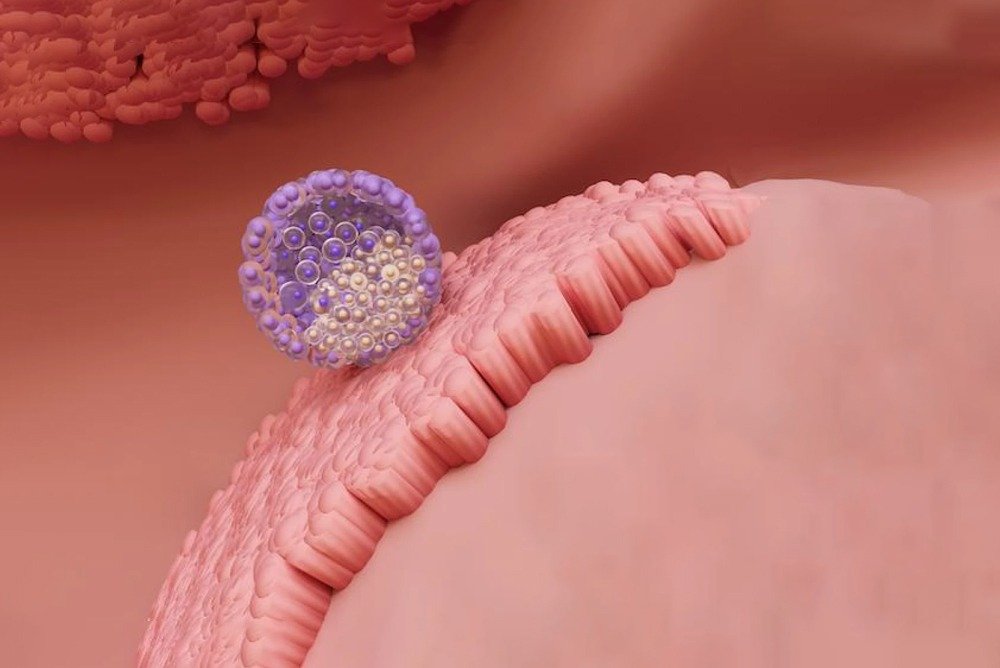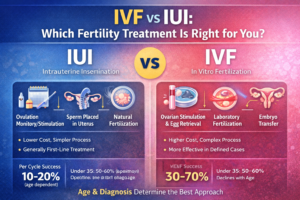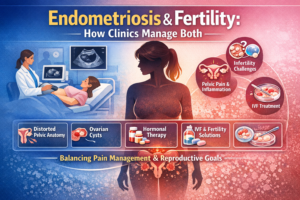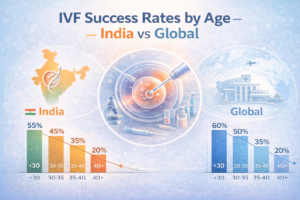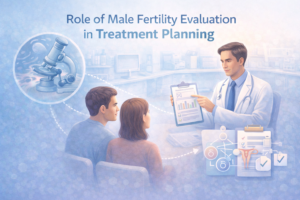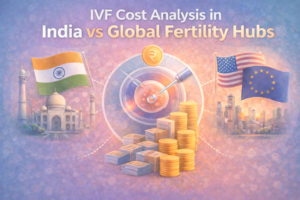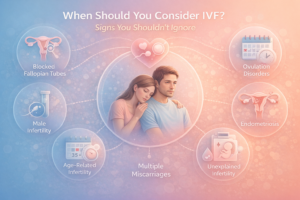Embryo implantation is one of the most critical and delicate phases in the IVF (In Vitro Fertilization) journey. Even when fertilization succeeds and a healthy embryo is formed, the process fails if the embryo cannot properly attach to the lining of the uterus (endometrium).
At Reviva IVF, under the expert care of Dr. Sandeep Cheema Sohi, we focus not just on creating viable embryos but also on optimizing every condition for embryo implantation success. With her track record in challenging infertility cases, Dr. Sohi ensures that patients receive meticulous, individualized support through this pivotal step.
In this post, we will explain:
- What embryo implantation is
- The stages and timeline
- Factors influencing successful implantation
- Challenges & recurrent implantation failure (RIF)
- How Reviva IVF approaches this step to maximize success
What is Embryo Implantation?
Embryo implantation refers to the process by which a fertilized embryo (usually at the blastocyst stage) attaches itself into the uterine lining (endometrium) and becomes embedded, establishing the beginnings of maternal-fetal connection. The success of implantation determines whether pregnancy can proceed.
Typically, implantation occurs about 6 to 10 days after egg retrieval/fertilization.
Stages & Timeline of Implantation
Here’s a more granular view of the steps involved in embryo implantation:
In many IVF cycles, the embryo is transferred on day 3 or day 5 (often as a blastocyst).
Critical Factors Influencing Successful Implantation
Implantation is a “high-stakes handshake” between the embryo and the uterine environment. Multiple conditions must align:
- Endometrial Receptivity
The uterine lining must be thick, well-vascularized, and hormonally primed (via estrogen & progesterone) to support embryo adhesion and invasion. - Synchronization
The developmental stage of the embryo and the ‘window of implantation’ of the endometrium must match precisely. - Embryo Quality & Viability
Embryos with the correct chromosomal makeup and good morphology are more likely to implant successfully. - Trophectoderm Function
The cells destined to form the placenta (trophectoderm) must effectively interact with endometrial cells, secrete necessary enzymes, and modulate immune tolerance. - Immune & Molecular Signaling
The maternal immune system must be tolerant (not rejecting the embryo as “foreign”), and molecular signals (cytokines, growth factors, adhesion molecules) must be favorable. - Uterine Health & Vascularization
Adequate blood flow, absence of scar tissue, fibroids, or anatomical defects matter. - Minimal Mechanical Disturbance
Physical factors like uterine contractions, poor catheter technique, or trauma can hamper implantation.
Challenges: Repeated Implantation Failure (RIF)
When multiple IVF cycles result in failure to implant despite apparently good embryos and embryos being transferred, it’s termed Repeated Implantation Failure (RIF). Wikipedia
Definition is debated, but a commonly accepted threshold is failure after three good-quality embryo transfers in a woman under 40. Wikipedia
Causes behind RIF may include:
- Undiagnosed uterine abnormalities (polyps, adhesions)
- Poor endometrial receptivity or hormonal mismatch
- Immunologic or thrombophilic disorders
- Subtle embryo defects (e.g. mosaicism)
- Poor embryo–uterine synchrony
- Poor embryo selection techniques
In such cases, deeper investigation and customized protocols are required.
How Reviva IVF Optimizes Embryo Implantation
Under Dr. Sandeep Cheema Sohi’s leadership, Reviva IVF employs a multi-pronged strategy to support implantation:
- Personalized Endometrial Preparation
Adjusting hormonal regimens to optimize endometrial thickness, vascularity, and receptivity. - Accurate Embryo Selection & Grading
Using advanced lab techniques and possibly time-lapse or AI-supported assessment to pick embryos with highest implantation potential. - Assisted Hatching (if needed)
For embryos with “hard” zona or for patients with previous failed cycles, partial thinning or opening of the zona can help implantation. Mayo Clinic - Monitoring Uterine Integrity
Pre-transfer evaluation of uterine cavity via imaging (ultrasound, hysteroscopy) to rule out lesions or adhesions. - Immune & Molecular Support
For patients with suspected immunologic factors, targeted therapies or adjuncts may be considered (after thorough evaluation). - Minimally Traumatic Transfer Technique
Use of soft catheters, ultrasound guidance, and gentle handling to minimize uterine irritation or contractions. - Supportive Luteal Phase Therapy
Ensuring adequate progesterone support so the endometrium remains optimal during early implantation. - Rigorous Follow-up & Monitoring
Early detection of issues, patient counseling, and adjustments where needed.
Final Thoughts
Embryo implantation is where the success of an IVF cycle truly hinges. Even with excellent embryos, if the uterine environment is not receptive, implantation fails.
At Reviva IVF, our commitment is to tend to both sides of this alliance — the embryo and the uterus — under the careful guidance of Dr. Sandeep Cheema Sohi. Her track record in overcoming complex infertility scenarios is built not just on lab skills, but on her holistic, empathetic patient care.
If you’d like a side-by-side infographic of the implantation timeline, or a version tailored for patients (less scientific) vs. for professionals (detailed), I’d be happy to draft that too. Would you like me to also prepare a shorter “patient-friendly” version that you can publish to your blog or hand out in clinic?





